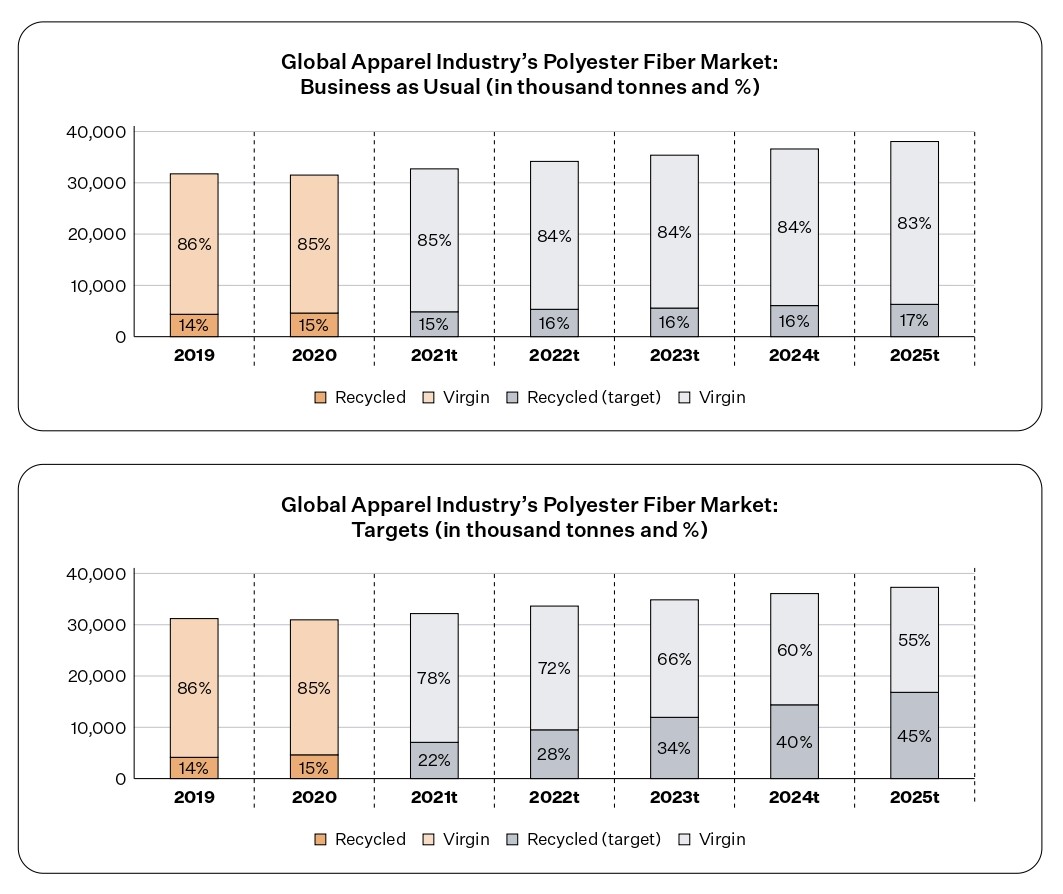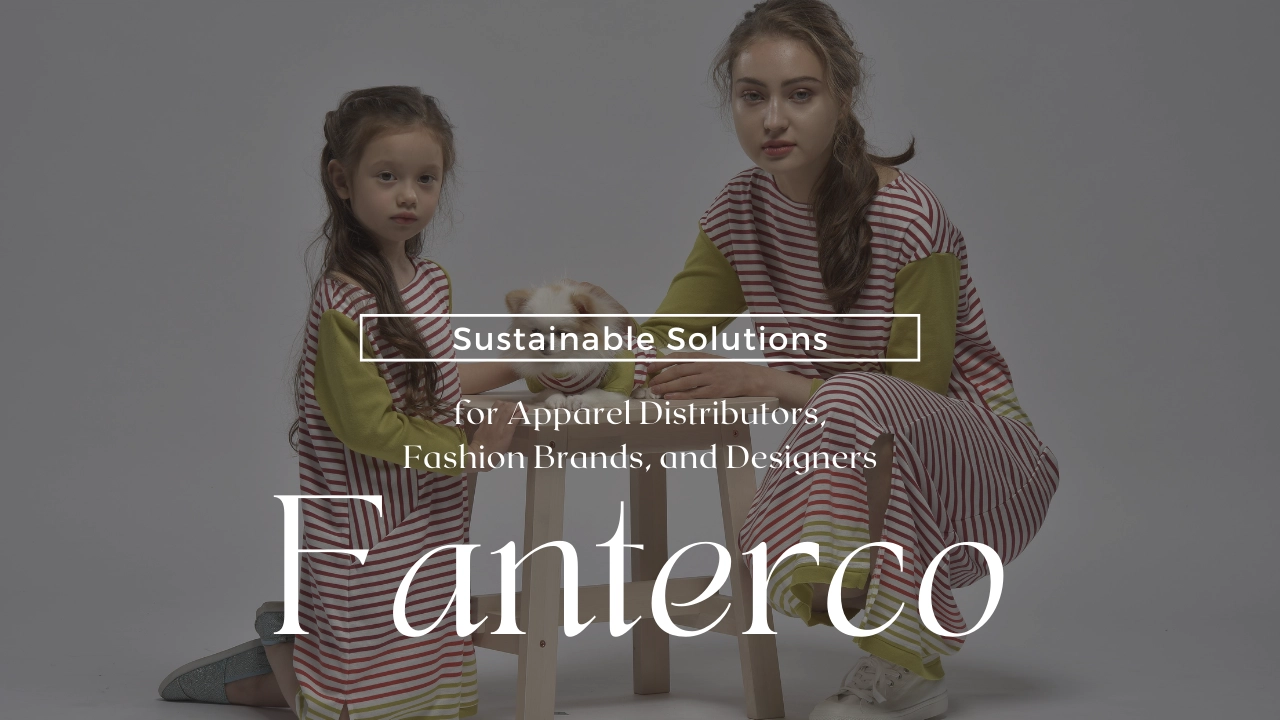Shifting Consumer Preferences and Ethical Fashion: Navigating the Eco-Friendly Fashion Landscape
2023/8/30
Shifting Consumer Preferences and Ethical Fashion: Navigating the Eco-Friendly Fashion Landscape
Consumer awareness concerning environmental and ethical considerations within the realm of fashion has achieved remarkable heights, igniting a momentous shift in market dynamics.
At this critical juncture, the fashion industry finds itself poised for change, where the incorporation of sustainable practices is no longer a mere aspiration but an imperative for enduring triumph. Within these pages, we plunge into the ever-evolving trends and evolving inclinations of the market that are propelling the fervent demand for eco-conscious fashion.
Moreover, we embark on an exploration of the pivotal significance carried by transparency and traceability within the intricate web of the supply chain. As we delve deeper, we uncover the collective industry endeavors that revolve around the core principles of ethics and sustainability, with a steadfast focus on the integral role played by recycled polyester in this transformative journey.
Industry Trends and Market Demand
The textile sector is undergoing a remarkable shift towards sustainability, with recycled polyester taking the lead in this evolution. Market insights reveal a rising appetite for sustainable textiles, as consumers actively seek out eco-conscious alternatives.
A standout industry trend is the surge in circular fashion, which underscores the significance of minimizing waste and adopting closed-loop systems. Recycled polyester seamlessly aligns with this approach, allowing the reutilization of post-consumer and post-industrial polyester waste, thus reducing the reliance on virgin polyester production. This trend is amplified by government regulations and industry initiatives advocating sustainability and endorsing the use of recycled materials.
Consumer choices also wield substantial influence, propelling the demand for recycled polyester. More consumers are consciously seeking sustainable fashion and supporting brands that champion environmental responsibility. They're becoming increasingly aware of the environmental repercussions of conventional textile processes and are opting for alternatives that shrink their carbon footprint.
The younger generations, notably millennials and Gen Z, are at the forefront of adopting sustainable fashion practices. These demographics prioritize sustainability when making purchasing decisions and actively gravitate towards brands that echo their values. This shift in consumer behavior has catalyzed a considerable market demand for eco-friendly and socially responsible products, including those fashioned from recycled polyester.
To satiate this demand, fashion brands and designers are incorporating recycled polyester into their collections, showcasing a resolute commitment to sustainability. They're tapping into the versatility of recycled polyester and showcasing its potential to craft high-quality, fashionable garments without compromising style or performance.

Transparency and Traceability in the Supply Chain
In the world of recycled polyester, supply chain transparency holds paramount importance, ensuring ethical standards are upheld, sourcing practices are responsible, and consumers are equipped with accurate information about their purchases' origins. It entails disclosing every step of the production, processing, and distribution of recycled polyester, from raw materials to the final product.
Transparency in the supply chain serves as a means to identify and address social and environmental concerns, such as the use of harmful chemicals, labor exploitation, or unsustainable methods. By championing transparency, companies demonstrate their dedication to ethical and sustainable business conduct, fostering consumer trust and catalyzing positive change across the industry.
To achieve supply chain transparency, traceability systems and technologies come into play. These systems meticulously track and record recycled polyester's journey through the supply chain, enabling stakeholders to verify the product's authenticity, quality, and sustainability. Common traceability methods include certification programs, blockchain technology, RFID tags, and supplier audits.
Fashion Industry Initiatives and Campaigns
The fashion industry has witnessed a surge in initiatives, campaigns, and movements aimed at propelling recycled polyester use and promoting sustainable practices. These endeavors wield immense power in raising awareness, igniting transformation, and fostering industry-wide cooperation towards a greener future.
Fashion Revolution is a noteworthy initiative that challenges the status quo, advocating for a transparent and sustainable fashion sector. Through their annual Fashion Revolution Week campaign, they engage consumers, brands, and industry stakeholders in discussions about fashion's social and environmental impacts, including the significance of utilizing recycled materials.
The "Make Fashion Circular" campaign, led by the Ellen MacArthur Foundation, unites brands, designers, and industry leaders to hasten the transition to a circular economy. It underscores the importance of designing products with recycling in mind and highlights the role of recycled polyester in forging a sustainable fashion realm.
Numerous fashion brands have launched their campaigns and collections spotlighting recycled polyester. Stella McCartney, a vocal proponent of sustainable fashion, incorporates recycled polyester into her designs, demonstrating that high fashion can effortlessly intertwine style and environmental consciousness.
Collective efforts like the Global Fashion Agenda, Sustainable Apparel Coalition, and the Textile Exchange play a pivotal role in driving sustainable practices across the industry. These collaborations convene industry leaders to set sustainability goals, share best practices, and collaboratively develop innovative solutions, including the amplified adoption of recycled polyester.
Fashion weeks and global industry events also dedicate platforms to sustainable fashion, shining a spotlight on recycled material use. These avenues grant designers the opportunity to showcase their recycled polyester creations, fostering awareness among industry professionals and consumers alike.
Fanterco's Sustainable Solutions for Apparel Distributors, Fashion Brands, and Designers
Moreover, within the realms of Fanterco, we stand resolutely at the forefront of championing supply chain transparency and traceability. Our heart swells with pride as we meticulously ensure that our array of recycled polyester fabrics are sourced with the utmost ethical integrity and crafted in strict accordance with the most exacting environmental standards.

By imparting an all-encompassing understanding of the genesis of materials and the intricate web of production processes, we bestow upon our esteemed clients the power to make enlightened decisions. Armed with this knowledge, they can seamlessly convey the profound sustainability essence of their products to their astute and discerning clientele.
Sources:
Grand View Research. Textile Recycling Market Size, Share & Trends Report. https://www.grandviewresearch.com/industry-analysis/textile-recycling-market-report
2025 Recycled Polyester Challenge - Textile Exchange https://textileexchange.org/app/uploads/2022/07/2025-Recycled-Polyester-Challenge_2022.pdf
Textile Exchange. Preferred Fiber & Materials - Market Report 2021. https://textileexchange.org/app/uploads/2022/10/Textile-Exchange_PFMR_2022.pdf
Blockchain-enabled Sustainability Labeling in the Fashion Industry https://www.sciencedirect.com/science/article/pii/S1877050921022389
The State of Fashion 2021 https://www.mckinsey.com/~/media/mckinsey/industries/retail/our%20insights/state%20of%20fashion/2021/the-state-of-fashion-2021-vf.pdf
Gen-Z and Fashion in the Age of Realism https://www.businessoffashion.com/reports/retail/gen-z-fashion-in-the-age-of-realism-bof-insights-social-media-report/
Using blockchain to drive supply chain transparency https://www2.deloitte.com/us/en/pages/operations/articles/blockchain-supply-chain-innovation.html
The Global Recycled Standard https://textileexchange.org/standards/grs/
Radio Frequency Identification (RFID) in the Fashion Industry https://www.intechopen.com/chapters/56657














